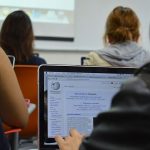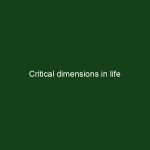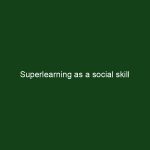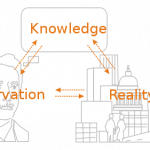How intelligent you are in a great part is determined by the capacity of your working memory. The working memory of most people is between 5 and 9 objects, meaning that with a very high chance the size of your working memory is 7. To be sure you can test yourself. It is tempting to …
Critical dimensions in life
So far I tried to keep most of the post pretty much centred along the superlearning axis of visualization-speedreading-knowledge. However occasionally I plan to look at things from wider perspectives. Today I want to express the way I feel about certain things in my life, or human life in general. People do have other very …
Having problems concentrating when reading
Some of our students have problems concentrating over boring or complex texts. I also have similar problem with some challenging texts. What usually works for me is rereading the text using various mindsets. I am asking myself: 1. How can I use this information? 2. Why is it different from common knowledge? 3. What is …
Continue reading “Having problems concentrating when reading”
Having fun with visual markers
One of the things we teach is having fun with visualization. We show plenty of examples, and then the students always say: “I am not that creative”. Well, guess what – nobody is THAT creative. We learn to be creative with markers, we are not born this way. The first thing Anna usually teaches after …
Superlearning as a social skill
When we started teaching superlearning skills we soon realized that social interaction improves the learning experience significantly. First of all, everybody thinks slightly differently and there is a lot we can learn from each other. Then, everybody has some issues when learning new habits, seeing other people struggling with the same problems improves determination. Finally, …
Practice smart or suffer headaches
Some of our students occasionally report headaches. There are many sorts of headaches, but they have one thing in common: wrong technique. There are many common ideas between going to gym and training your brain. Just like bad practice in gym can cause back aches and orthopaedic damage, bad practice with your brain can cause …
“Colouring” the text you read
Sometimes the text I read is heterogeneous and addresses the issues from many points. To keep track of various perspective I “colour” the text according to the dominant perspective of each paragraph. I try to follow the “colours” in the visualization themes and I try to be capable to reproduce the article photographically with “colour” …
Innovation focus in learning
One of the key points we learn in information theory is always looking for innovation. It does not matter if we are trying to build a search engine or send a rocket to the moon: we predict what will happen, and if we are sufficiently surprised by what actually happens we take notice. In my …
Thinking while reading
Thinking while reading is very natural for someone who reads slowly but very complex for someone who reads fast. First of all, when speedreading the brain is just too busy. It has to follow the prepare-read-analyse cycle of building up interest, absorbing the information and retaining the information absorbed. When generating interest it needs to …
Knowledge and its support
This is a common mistake, a mistake that I do, and I do it even now after many years of training… Taking things that I know for granted… What facts support our knowledge? What resources do we use? Who are the authority figures behind current paradigm? What was the previous paradigm? Probably nothing is truly …










